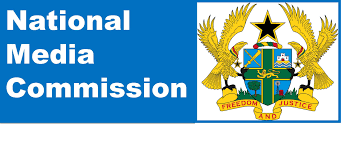Editorial
Clubs must be proactive to prevent violence at home grounds
Dear Editor,
The recent disturbances during a Ghana Premier League match between Nsoatreman FC and Kumasi Asante Kotoko on Sunday, February 2 in Nsoatre in the Bono region, which tragically resulted in the death of a dedicated supporter of Kotoko, have revealed the deep security issues affecting the growth of Ghana football.
The incident reveals the increasing lawlessness and violent behaviour of some football fans during and after games, the lack of proper security measures in place, and the failure to address violence in Ghanaian football.
Football is meant to unite, inspire, and entertain, not to claim lives. The loss of Francis Yaw Frimpong, aka Nana Pooley, is something that should never have happened, and justice must be served.
The Ghana Police Service has taken bold and expected steps by arresting suspects, but this should only be the beginning of a huge effort in eradicating football-related violence across the country.
Also, clubs should be held accountable for their actions and ensure proper measures to keep their venues security-ready and safe.
Strict punishments must be meted to people who involve themselves in football-related violence. Those found guilty of inciting or participating in hooliganism should face lifetime bans from venues with heavy fines and criminal prosecution.
To act as a deterrent, clubs whose supporters commit violent crimes should also be subject to severe sanctions, such as fines and point deductions. Additionally, campaigns for education and awareness must be planned in order to inform supporters who act ignorantly due to emotion and a lack of knowledge about the repercussions.
Finally, in order to stop additional harm, everyone should have access to better compensation and support for referees and players. Dissatisfaction with refereeing calls or unfavourable match conditions are the primary causes of violent events. Some of these conflicts can be avoided by making sure referees are properly protected, rewarded, and trained. Players, too, need to feel safe when stepping onto the pitch, knowing that their careers and lives are not at risk.
This tragic incident should serve as a wake-up call for all football lovers and demand concrete actions to be taken to prevent more violence and the possible collapse of our domestic league and damage to Ghana’s football reputation. The GFA, clubs, security agencies, and fans must come together to fight this cancer, which is almost taking over our game.
Enoch Ntiamoah,
Nkawkaw
Editorial
NMC must enforceguidelines to protectviewers, especially minors

Dear Editor,
I WRITE to express my growing concern about the increasing display of adult content on some television stations in the country.
These programmes, often aired during hours when children are most likely to be watching, pose a serious threat to their moral development and general well-being.
Television remains one of the strongest influences on young people, and stations have a responsibility to ensure that their content reflects the values we seek to instil in our society.
Unfortunately, some channels appear to prioritise sensationalism and profit over public safety and decency.
Such content not only exposes children to material they are not prepared to process but also undermines parents’ efforts to guide their behaviour.
I call on the National Media Commission (NMC) and other regulatory bodies to intensify monitoring and enforce stricter guidelines to protect viewers, especially minors.
Broadcasters must be reminded of their duty to promote responsible and wholesome programming.
Our airwaves should uplift, educate, and inform — not endanger the moral fabric of the next generation.
Eugene Ampiaw,
Accra
Join our WhatsApp Channel now!
https://whatsapp.com/channel/0029VbBElzjInlqHhl1aTU27
Editorial
Balancing faith,discipline at Wesley Girls SHS
Dear Editor,
I AM writing to share my thoughts on the ongoing issue at Wesley Girls’ Senior High School, which has attracted national attention after the Deputy Attorney General released a statement in court.
The matter is about whether Muslim students are being denied the right to freely practice their religion, and whether they are being compelled to follow practices that go against their faith.
To me, this is not just a legal issue but a question of fairness and respect in our schools.
While the Constitution guarantees every student the right to practice their faith, schools also have traditions and rules that must be respected. As the saying goes, “When you go to Rome, you do what Romans do.” If a teacher is teaching, it is not right for a student to suddenly leave for prayers. That disrupts learning.
Instead, schools should provide a clear time and place for worship, so that students can honour their faith without disturbing academic work. There is time for everything; time to learn, and time to pray.
Wesley Girls SHS can continue to uphold its Methodist heritage while also respecting the rights of Muslim students.
This compromise will protect unity and ensure that our schools remain places of both discipline and inclusion.
Princess Wonovi
Accra
Join our WhatsApp Channel now!
https://whatsapp.com/channel/0029VbBElzjInlqHhl1aTU27






